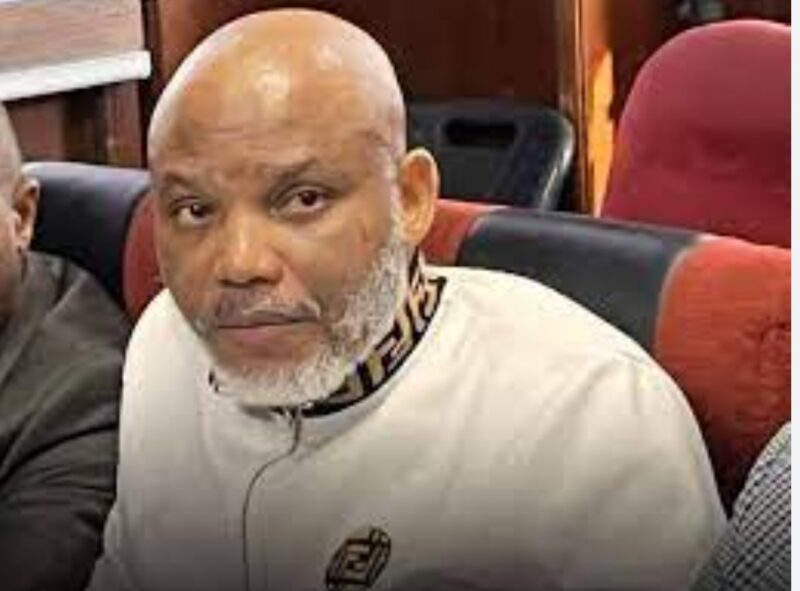Video: Nnamdi Kanu convicted of terrorism, faces possible death sentence

Nnamdi Kanu
Abdullateef Fowewe
The Federal High Court in Abuja, presided over by Justice James Omotosho, convicted Nnamdi Kanu, leader of the Indigenous People of Biafra (IPOB), on charges of terrorism on Thursday.
Video: Nnamdi Kanu convicted of terrorism, faces possible death sentence
The conviction came after Kanu disrupted court proceedings and was escorted out by security officers.
Justice Omotosho declared conviction on the first of seven terrorism-related counts against Kanu, who faces charges including incitement, leading a proscribed organisation, and acts threatening national security.
Justice Omotosho ruled that Kanu’s declaration and enforcement of a “sit-at-home” order across Nigeria’s Southeast, accompanied by threats and violence, constituted a terrorist act under Section 16 of the Terrorism Prevention Act 2013.
The judge stated, “This court holds that the prosecution has established count one beyond reasonable doubt,” further noting Kanu’s refusal to enter a defense and his removal due to “unruly behaviour.”
The conviction on count one was followed by a similar ruling on count two, also carrying a possible punishment of death or life imprisonment.
Kanu has been held by Nigeria’s Department of State Services since June 2021 after his extradition from Kenya under what his lawyers describe as “extraordinary rendition.”
He has consistently denied the allegations, maintaining that the charges lack legal basis.
The court is yet to deliver judgement on the remaining five counts, all of which carry the same maximum penalty.
Sentencing is expected soon, with the court emphasising that death or life imprisonment are the prescribed punishments for the offenses.
The trial has been marked by Kanu’s defiant stance, including legal challenges to the validity of the charges and persistent courtroom disruptions.
The government’s case portrays Kanu’s leadership of IPOB and related activities as a serious threat to Nigeria’s national security, while supporters decry the trial as politically motivated persecution.




